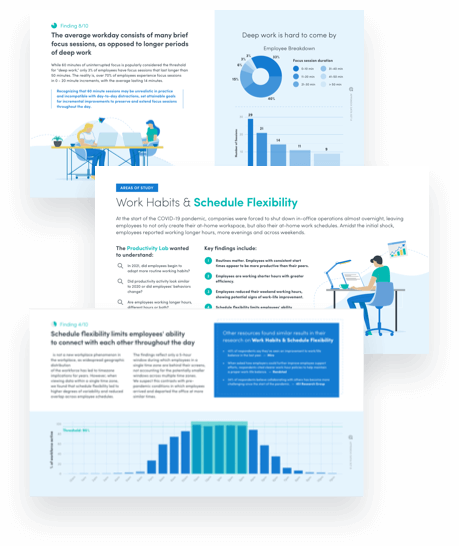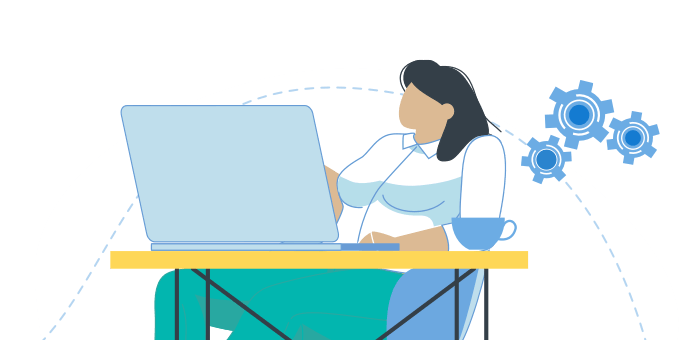Achieving focus throughout the workday is not a new challenge, but distractions today look very different than they used to. Open office and hallway chatter have been replaced by interruptions from collaboration tools, notifications, alerts and subconscious habits. Distractions on digital devices are so easy to access that when individuals want something more interesting, less challenging, or altogether different, it’s readily available.
The Productivity Lab wanted to understand:
Key findings include:
Focus sessions
The average work consists of many brief focus sessions, as opposed to longer periods of deep work.
Focus disruptions
Collaboration tools are the number one source of focus disruptions.
Collaboration
Employees spend substantial time in collaboration and multi-tasking activities throughout the day.
Finding 8/10
The average workday consists of many brief focus sessions, as opposed to longer periods of deep work
While 60-minutes of uninterrupted focus is popularly considered the threshold for “deep work”, only 3% of employees have focus sessions that last longer than 50-minutes. The reality is, over 70% of employees experience focus sessions in 0-20 minute increments, with the overage lasting 40-minutes.
Recognizing that 60 minute sessions may be unrealistic in practice and incompatible with day-to-day distractions, set attainable goals for incremental improvements to preserve and extend focus sessions throughout the day.
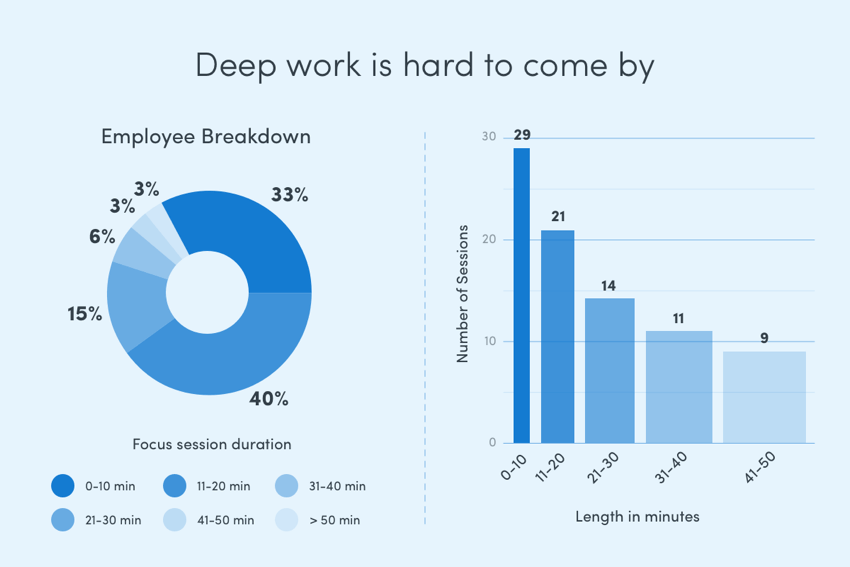
Finding 9/10
Collaboration tools are the number one source of focus disruptions
The research shows that collaboration applications were the greatest cause of focus session disruptions, accounting for 21% of distractions. On average, these tools distract an employee 70 times per day with alerts to engage in meetings, respond in messages or reply to emails.
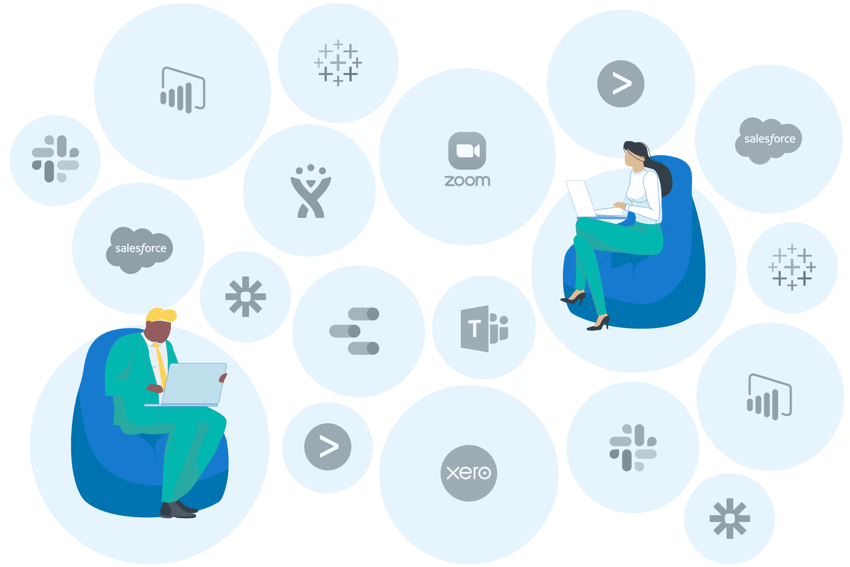
Finding 10/10
Employees spend substantial time in collaboration and multi-tasking activities throughout the day
Since the shift to remote and hybrid work, much of the discussion around fatigue has centered on collaboration tools (e.g., chat and messaging, meeting applications) and multi-tasking activities (activities that reflect back and forth behavior across multiple tasks). The Productivity Lab discovered that employees spend one-third of their day (33%) across these two activity types; at times, multi-tasking while in collaboration tools.
Leaders must shift their focus toward collaboration strategies to better address the potential negative consequences brought about by collaboration-related fatigue.
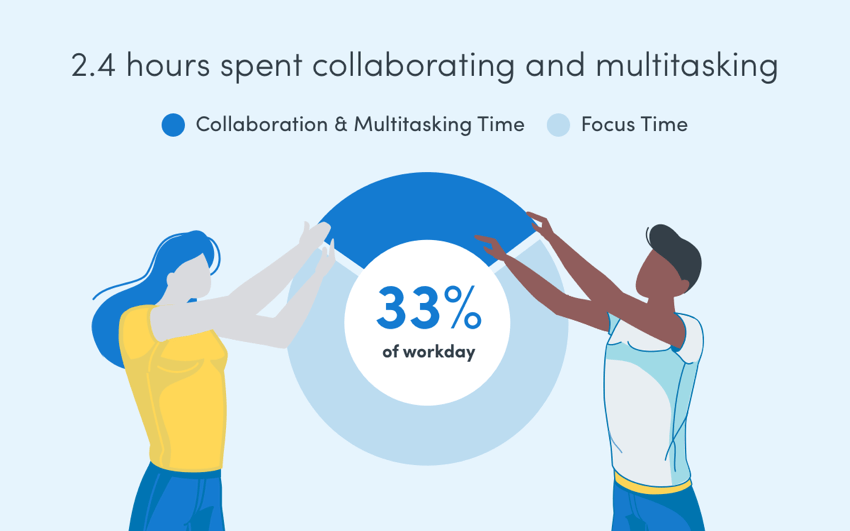
Other resources found similar results in their research on Workplace Focus & Distractions
- On average, companies are using seven different tools for messaging, collaboration, file sharing, and meeting management. — Constellation
- “Efforts to deepen your focus will struggle if you don’t simultaneously wean your mind from a dependence on distraction.” — Cal Newport
Glossary
Focus
Working time in which an employee is engaged and working on a single task without multitasking (interruptions or attention shifts) and collaboration activities.
Focus Session
The average time employees operate without multitasking (interruptions or attention shifts) and collaboration activities.
Collaboration
Productive time that occurs through two-way communication using digital collaboration tools like meeting software, chat and messaging. Collaboration Time, by definition, is not focused, even though it is critical in every company.
Productive Time
Breakdown includes business-related focused, collaboration, and multi-tasking activities.
Multi-tasking
Multitasking activity performed within productive applications; consists of genreal administrative business task while an attention shift event is happening
References
-
Newport, C. (2016). Deep Work: Rules for Focused Success in a Distracted World. Grand Central Publishing.
-
Hinchclife, D. (2021, March). Employee Experience: Moving to a Decisive New Model for the Future of Work. Constellation Research
https://www.constellationr.com/research/employee-experience-moving-decisive-new-model-future-work
Get the Full Report
Click the button below to access a downloadable PDF!
